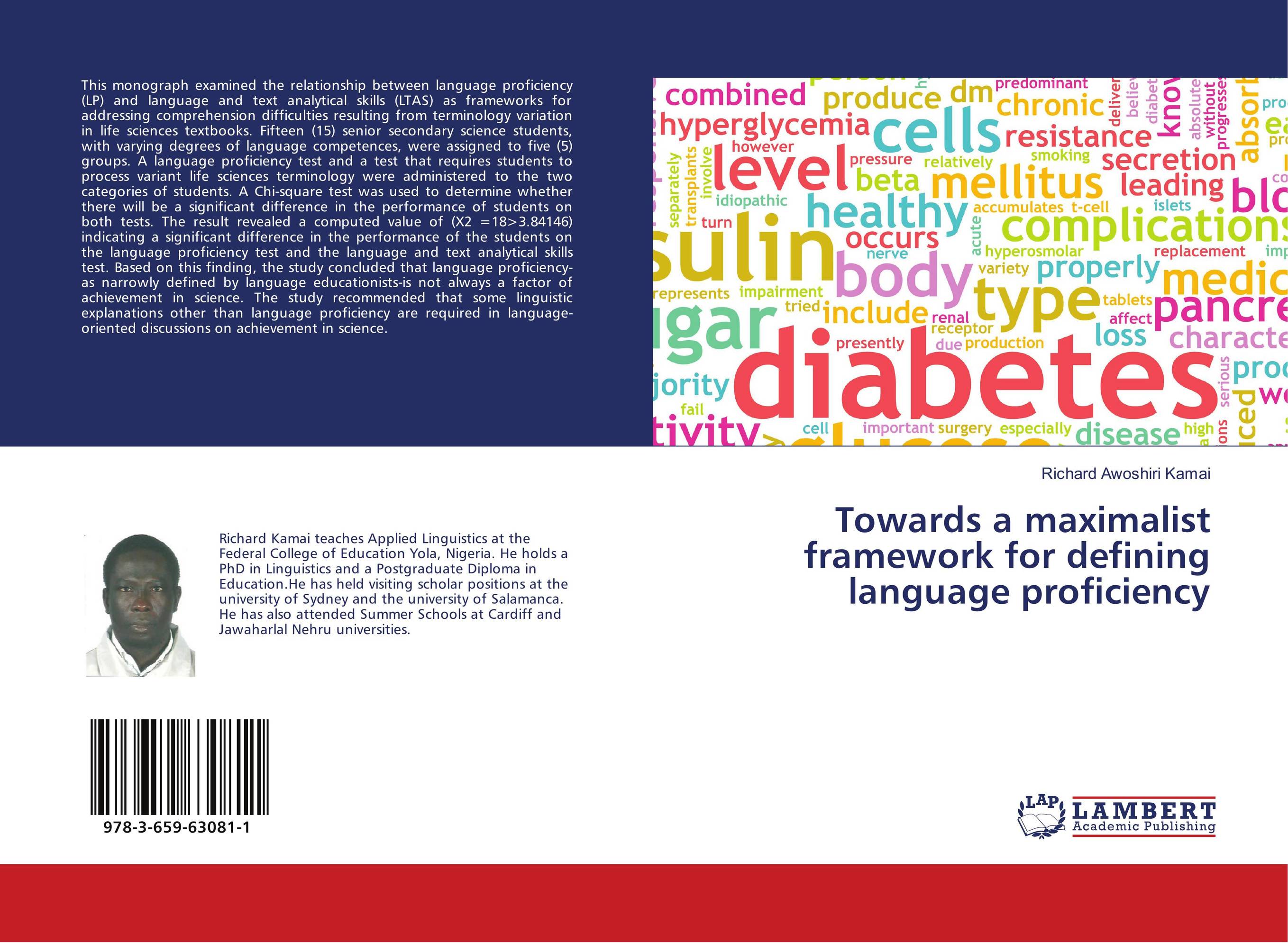| Поиск по каталогу |
|
(строгое соответствие)
|
- Профессиональная
- Научно-популярная
- Художественная
- Публицистика
- Детская
- Искусство
- Хобби, семья, дом
- Спорт
- Путеводители
- Блокноты, тетради, открытки
Towards a maximalist framework for defining language proficiency.

В наличии
| Местонахождение: Алматы | Состояние экземпляра: новый |

Бумажная
версия
версия
Автор: Richard Awoshiri Kamai
ISBN: 9783659630811
Год издания: 2018
Формат книги: 60×90/16 (145×215 мм)
Количество страниц: 68
Издательство: LAP LAMBERT Academic Publishing
Цена: 21556 тг
Положить в корзину
Позиции в рубрикаторе
Сферы деятельности:Код товара: 206647
| Способы доставки в город Алматы * комплектация (срок до отгрузки) не более 2 рабочих дней |
| Самовывоз из города Алматы (пункты самовывоза партнёра CDEK) |
| Курьерская доставка CDEK из города Москва |
| Доставка Почтой России из города Москва |
Аннотация: This monograph examined the relationship between language proficiency (LP) and language and text analytical skills (LTAS) as frameworks for addressing comprehension difficulties resulting from terminology variation in life sciences textbooks. Fifteen (15) senior secondary science students, with varying degrees of language competences, were assigned to five (5) groups. A language proficiency test and a test that requires students to process variant life sciences terminology were administered to the two categories of students. A Chi-square test was used to determine whether there will be a significant difference in the performance of students on both tests. The result revealed a computed value of (X2 =18>3.84146) indicating a significant difference in the performance of the students on the language proficiency test and the language and text analytical skills test. Based on this finding, the study concluded that language proficiency-as narrowly defined by language educationists-is not always a factor of achievement in science. The study recommended that some linguistic explanations other than language proficiency are required in language-oriented discussions on achievement in science.
Ключевые слова: language proficiency, Science achievement, Terminology variation, Language and Text Analytical Skills



